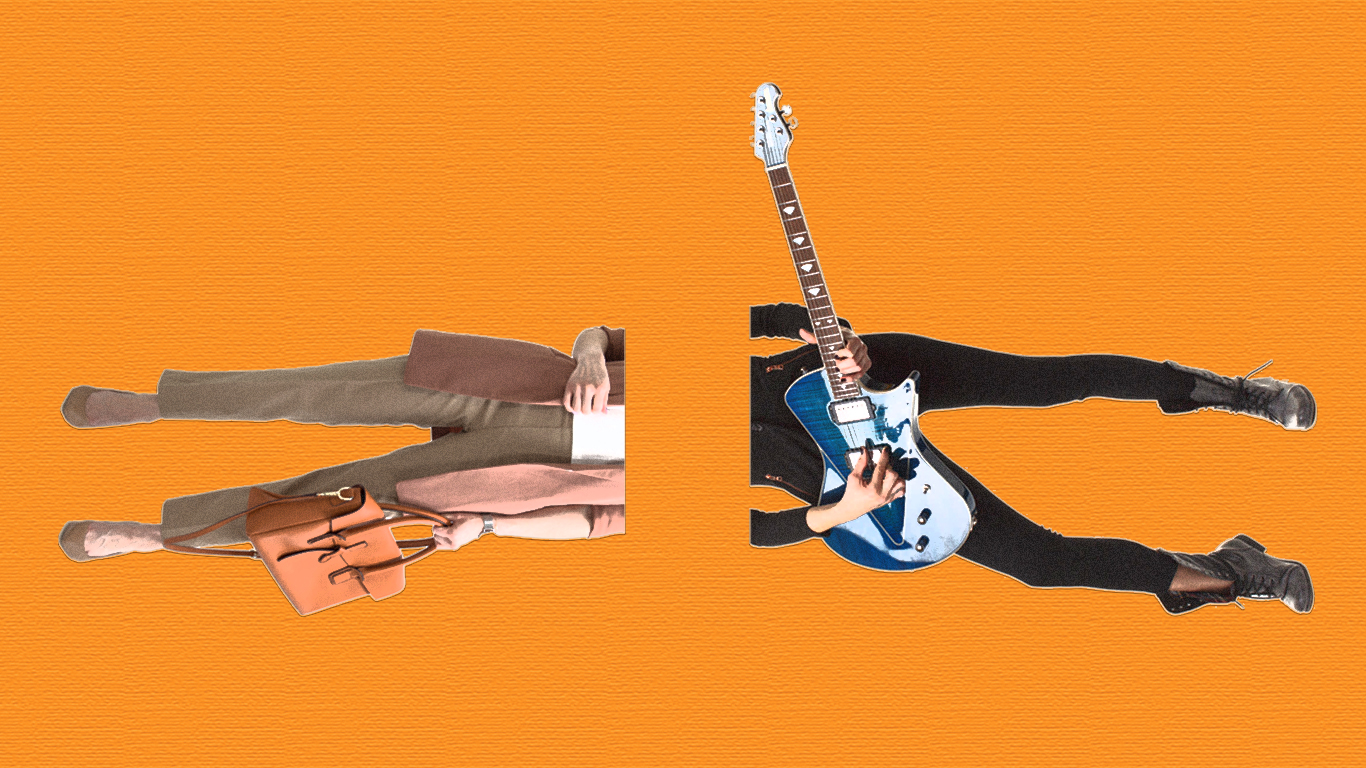
Is there a “right time” to become a professional musician?
Many of us know the ache of not being able to make music from sun up to sun down. Instead, we have to drive to work, sit in traffic, and work a job that pales in comparison to our dream of being a musician.
On top of this ache, we come home from work wishing we had more energy to make music in the little free time we have.
But the world tells you not to quit your day job and to not pursue music. They say it would be stupid, that there’s no money in it.
But the question isn’t “if” you should quit your day job, it’s “when.”
When is the right time to make that jump from a part-time to a full-time musician?
Here are a couple things to consider before deciding to quit that lousy desk job.
Show Me The Money
This is easily the biggest problem for part-timers who are looking to go full-time. And it’s not because we don’t know how to make money from music. There are tons of super helpful blog posts, videos, and books on the topic.
The real hurdle is finding the income streams that work for you and then going out (or staying in) and getting people to pay attention. You know, actually making the money.
But you can do it. People do it all the time. It’s just a matter of hard work and patience. If you stick with it, eventually you’ll start to see the money roll in (or trickle in).
As Ari Herstand says in his book How To Make It In The New Music Business: music is a marathon, not a sprint.
The Dangers Of Music Becoming Your Day Job
Being a full-time musician sounds amazing, but what if it just gets old like any other job?
Singer-songwriter Gregory Alan Isakov can speak to this. Because he’s not just a singer-songwriter — he’s also a farmer. Music isn’t his full-time gig because he still enjoys running his farm.
In an interview with Inc, he talked about being a farmer, being a musician, and balancing the two parts of his professional career.
“There’s an economy involved in music, but no one talks about the economy of joy and satisfaction,” he says. “There’s a sweet spot. Your happiness and your comfort level is worth a lot.”
And when your happiness is the most important thing, you may give up the chance to get more money or fame in order to stick with what makes you the happiest.
“We tell our booking agent things like, ‘When we go to Portland, just book us into the same venue. We love that place,’” Isakov says, even though they could play a bigger venue and sell more tickets.
He says “…being happy —and loving the experience — is sometimes more important than making more money.”
Happiness trumps money every time.
When Should You Quit Your Day Job?
Let me be clear, I’m not saying we shouldn’t strive to make a full-time career as a musician. If I had to guess, I’d say that’s what most of us want. That’s what I want for myself.
The point here is to not make the jump to full-time status before you’re ready.
Not only do you need to have some sort of financial plan in place, but you also should consider how your relationship with music may change.
So before you quit your day job, just ask yourself: can I make the finances work? And am I okay with music becoming my everyday job?
If you answered yes to both questions, I think now may be the time to make the jump and heal the ache.
